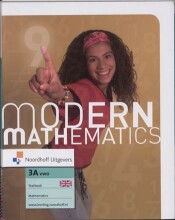Summary: Cae Hfst 9 T/m 14
- This + 400k other summaries
- A unique study and practice tool
- Never study anything twice again
- Get the grades you hope for
- 100% sure, 100% understanding
Read the summary and the most important questions on CAE hfst 9 t/m 14
-
1 Chapter 9
This is a preview. There are 10 more flashcards available for chapter 1
Show more cards here -
What are time adverbials?
words or phrses whih say when something happens/happened.
I went jogging after I'd finished lunch. Terry is playing hockey tommorrow afternoon. -
What are time clauses?
they are often introduced by words and phrases like, when, as soon as, until, after etc.
I'll give you a call as soon as I arrive. -
For what is the present tense used?
to talk about the present. Martina can't bear people interrupting while she's talking. -
What is the difference between the simple and perfect tenses?
use the simple in the time clause when you want to emphasise both actions equally and use the perfect when you want to put more emphasis on the acction in the main clause. -
For what do you use a perfect tense in the time adverbial?
o talk about an action happening for some time before the time in the main clause: He sat down to write the report when he'd collected enough data. -
When do you use a simple tense?
if the actions take place at the same time: I did my homework while I waited for the train. -
When do you use a continuous tense?
when you want to describe something which is/was in progress when something hapens/ happened: I twiste my ankle while I was jogging last sunday. -
2 Chapter 10
This is a preview. There are 13 more flashcards available for chapter 2
Show more cards here -
What should be usedfor specific past abilities?
able to, manage to or succeed in + -ing form: We couldn't open the door using the key. Eventually we managed to get in/ succeeded in getting in/ were able to get in by breaking a window. -
What should be used to refer to conditional ability ?
could/would be able to or could have+ past participle/ would have been able to: If we hadn't broken the window, we couldn't have got/ wouldn't hve been able to get into the house. -
Be able/unable to is often used instead of can/could, for what reason?
to express the future and other forms where there is no option with can or where can/could would be incorrect: I'd like to be able to see better.
- Higher grades + faster learning
- Never study anything twice
- 100% sure, 100% understanding





























